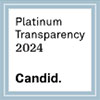US-developed RHDV2 Vaccine Receives USDA Emergency Use Authorization
House Rabbit Society gladly acknowledges the Emergency Use Authorization (EUA) of Medgene Labs’ recombinant vaccine against rabbit hemorrhagic disease (RHDV2). This FAQ is designed to help bunny caregivers understand this vaccine and its role in protecting rabbits from this disease. House Rabbit Society strongly recommends vaccinating all rabbits to protect them from this deadly disease with any of the available vaccines – the vaccines are remarkably safe and prevent the vast majority of illness and death.
Currently, 45 State Veterinarians and District of Columbia have already authorized emergency use of the new RHDV2 vaccine, and Medgene anticipates approval in more states in the near future as well as a conditional approval status by summer of 2023. States that have still not accepted the EUA for Medgene’s vaccine include Maine, Massachusetts, New Hampshire, Vermont, and Alaska. See “Vaccine Accessibility” for the current list of authorized states.
Medgene’s RHDV2 vaccine is made of a single “subunit” or part of the RHVD2 virus that, when administered properly, results in a robust immune response in the rabbit which we observe as near-complete resistance to RHD. More vaccine information from Medgene is available here.
This vaccine is a shot administered in 2 subcutaneous doses, 21 days apart and (according to preliminary reports) once a year thereafter to maintain the advertised efficacy.
Properly administered, Medgene’s vaccine will be fully effective 35 days after the first dose and 14 days after the second injection. Data on the booster is not yet available. The vaccine’s advertised efficacy requires both shots in the 2-dose regimen.
In Medgene’s preliminary tests, all vaccinated rabbits survived a “challenge” which means that researchers intentionally injected the live virus that causes RHD into rabbits who had been fully vaccinated with Medgene’s vaccine; 100% of vaccinated rabbits survived this challenge in laboratory conditions.
The vaccine is not yet fully licensed by the USDA, but instead has been given Emergency Use Authorization. As part of the EUA process, Medgene has demonstrated preliminary vaccine efficacy and safety. Additional efficacy and safety studies are underway as the company works towards a full product license.
EUA makes Medgene’s recombinant vaccine available for any State Veterinarian in the USA who wishes to distribute the vaccine in their state. This authorization does not require confirmed cases of rabbit hemorrhagic disease in that state.
Additional data must be generated by Medgene and must meet final safety criteria for full approval, but Medgene’s vaccine has undergone extensive preliminary testing and these data do suggest this vaccine is safe!
So far, Medgene safety testing studies report only rare instances of swelling at the injection site which resolve within 48 hours. Other possible side effects are a temporary slight fever and/or lethargy for 1-2 days.
State Veterinarians authorize and direct vaccine use in their state, including recordkeeping and ID requirements.
Under Emergency Use Authorization, Medgene Labs is distributing vaccine ONLY to licensed veterinarians in authorized states. Licensed veterinarians should contact Medgene Customer Service at (605) 697-2600 for more information on approval status in their state and how to purchase vaccine.
Rabbits are not used in the general manufacture of this vaccine. However, a limited number of rabbits are required to determine the safety and efficacy of the vaccine under federal law. Once this vaccine receives full authorization, no additional rabbits will be required to produce the vaccine.
Medgene expects the cost to be comparable to the two previously imported RHDV2 vaccines. Medgene’s vaccine is available for purchase by licensed veterinarians only at this time. These veterinarians and their practices will determine prices, so the cost may vary and might include required recordkeeping such as identification requirements (like microchips injected under the skin or tattoos), which may also be reflected in the veterinarian’s cost of vaccination.
No, this vaccine does not involve any infectious virus or whole viral particles and cannot cause viral shedding in vaccinated animals. However, if a vaccinated animal is infected with RHD, it may shed virus without showing symptoms.
Safety studies have not yet been completed for these rabbit populations, but the available data suggest this vaccine will eventually be approved for use in pregnant and nursing rabbits.
Vaccination is the best protection you can give your companion rabbit. Continued biosecurity and decontamination is a good idea under most circumstances. For those choosing not to vaccinate their rabbit(s) for any reason, we recommend that strict biosecurity continue at all times. Caregivers should maintain strict biosecurity for immunocompromised rabbits as they are still at significant risk before and after vaccination. We also recommend decontamination in the event of known or probable exposure – like if a family pet returns home with a wild or feral bunny. Those who are particularly risk averse may wish to continue some measure of biosecurity after vaccinating their rabbits, like removing shoes before entering the home. We highly recommend continuing biosecurity in areas where RHD is endemic and suggest contacting your local HRS chapter to learn more about the best practice for your region.
HRS asks that caregivers and chapters abide by the recommendations of their respective state veterinarian and any state and local ordinances pertaining to RHDV2 when determining updated biosecurity practices. We understand that standards and risks vary widely between states where RHD is endemic and those where it has not yet been diagnosed. Some states’ policies may also differ based on the potential risk that RHD presents to threatened and endangered wild rabbits like the New England cottontail and the Lower-Keys marsh rabbit.
House Rabbit Society recommends rinsing all greens intended for your pet rabbit whether they are vaccinated or not, however decontamination of greens involving sanitizing chemicals or extensive series of washes are not necessary for vaccinated rabbits.
Your local HRS chapter will guide you through the recommended steps to help promote the safety of your companion rabbits in the face of this ongoing disease while observing the appropriate practice for your region. Advice you receive regarding biosecurity practices might differ significantly from chapter to chapter and this is a result of regional differences in risk assessment and policy dictated by your state’s authorities.
Medgene recommends vaccination starting at 7 weeks of age.
This article was written by Iris Klimczuk and Christie Taylor, PhD. This article was reviewed by Anthony Pilny, DVM.
Published October 27, 2021. Updated April 20, 2023.
Sign up to Our Newsletter!
Sign up for web update alerts and our monthly e-newsletter
to stay current on HRS, our Chapters, and info for your bunny.




